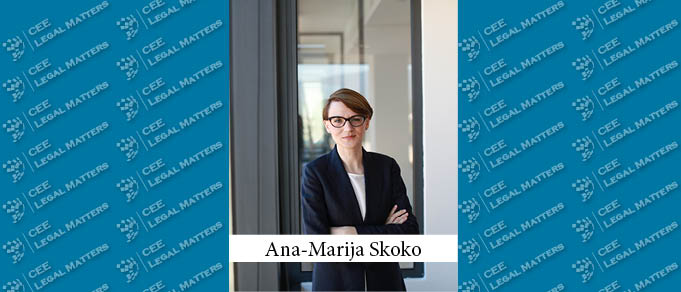The world is getting older by the minute, and this is a fact.
According to data from World Population Prospects 2019, by 2050, one in six people in the world (16%) will be over age 65. The number of persons aged 80 years or over is projected to triple, from 143 million in 2019 to 426 million in 2050. In the EU, the total cost of ageing (including public spending on pensions, health care, long-term care, education, and unemployment benefits) is expected to increase to 26.7% of GDP by 2070.
With advancements in medicine and healthier lifestyles, there are more people entering retirement age now than ever before. According to official reports across the board, the old-age dependency ratio has been on a rapid rise over the years, including in SEE.
The aging population is poised to become one of the most significant forms of social transformation in the twenty-first century. The rapid rise of average life expectancy will necessitate improvements in nearly all sectors of society and specifically shape the investment climate for autonomous senior housing solutions. Residential alternatives, including retirement living, will be on the rise. According to the recent CMS Study on Urban Living, 92% of real estate professionals expect demand for retirement living to increase over the next five years, making it the most popular residential asset.
As a result, there is now real momentum behind the senior housing sector. Supply is low and demographic factors – as per above – point to increasing demand. Businesses will be targeting third-generation people more and more, developing projects that offer not only tailored housing to senior members of the society but comprehensive lifestyle support services.
From a legal point of view, it will be interesting to see how governments respond to this low supply/increased demand situation, especially as the SEE senior housing solutions market is still in early stages of development compared to similar markets in the United Kingdom and Holland, which are seen as pioneers in senior housing innovations.
Indeed, both the United Kingdom and Holland offer trailblazing solutions, recognizing that psychological and environmental factors significantly influence the quality of life of senior citizens.
Holland, for instance, has launched a number of pilot projects to address the psychology of aging. One such project allowed students to live rent free alongside elderly residents, in return for a commitment to spend a specified number of hours supporting their elderly neighbors. The project was intended to promote the relationship between the generations, while at the same time allowing the elderly to stay in the homes in which they have lived for years.
The United Kingdom’s senior housing market is very diversified. Retirement villages have become popular, offering their residents a wide range of social and leisure facilities. Residents are able to live independently and maintain an active social life and access to additional learning in their golden years, while having assess to home and personal care services.
Finally, both markets acknowledge the financial restrictions on affordable housing solutions. To address the issue, seniors are encouraged to make early retiring planning, while at the same time, steady pressure has been put on the government to increase spending to adjust for the rising aging population.
The demographic situation in Croatia is following the aging trend, as 19.72% of inhabitants are currently over the age of 65, and this percentage is increasing. At the same time, there are just over 160 nursing homes for a population of 4.1 million, and there is a substantial waiting list. Stay in nursing homes is still privately funded, with no subsidies available on a state level. The market is, however, slowly activating due to the increased demand for (alternative) housing solutions. We expect see an increasing number of options over the next decade that allow seniors to take care of themselves as independently as possible, to have a purpose, to live their lives as they want, capitalizing on the expected medical and technical advantages, while at the same time offering a range of options for pay-in participations and subsidies to lower the financial burden. Regardless of the path that this development takes, one thing is certain: the housing market needs to grow and develop now.
By Ana-Marija Skoko, Partner, CMS Zagreb
This Article was originally published in Issue 6.11 of the CEE Legal Matters Magazine. If you would like to receive a hard copy of the magazine, you can subscribe here.



